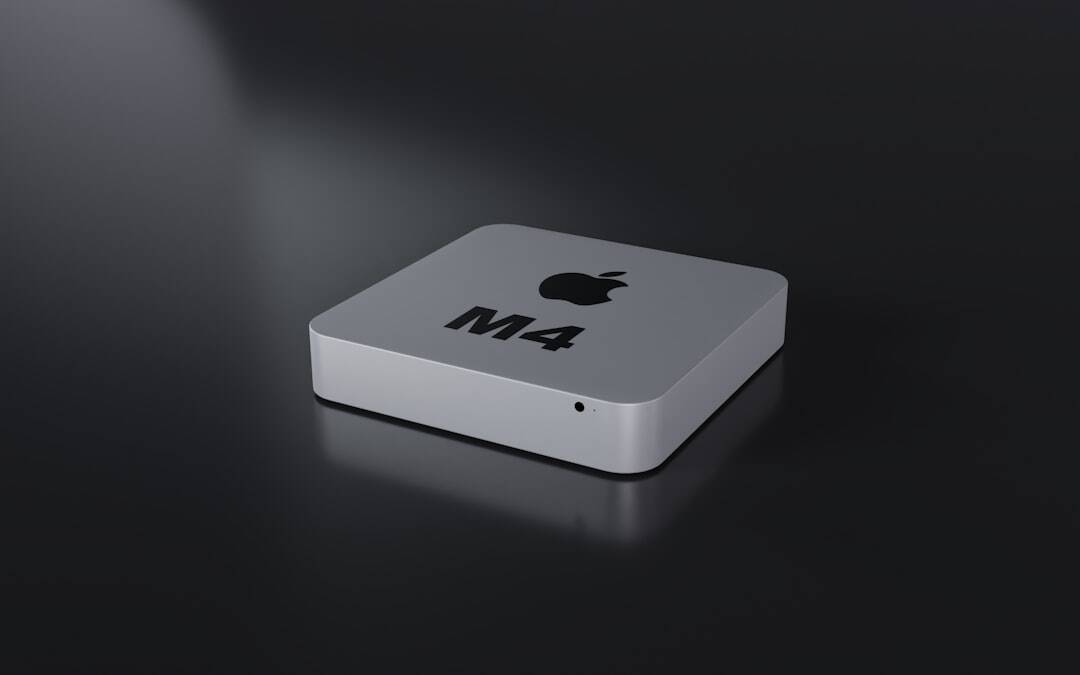In recent years, the intersection of artificial intelligence and healthcare has garnered significant attention, with Google DeepMind emerging as a frontrunner in this transformative arena. Founded in 2010 and acquired by Google in 2014, DeepMind has made remarkable strides in leveraging AI to tackle some of the most pressing challenges faced by the healthcare sector. The organization’s mission is to solve complex problems through advanced machine learning techniques, and its applications in healthcare are particularly noteworthy.
By harnessing vast amounts of medical data, DeepMind AIms to enhance patient outcomes, streamline processes, and ultimately revolutionize the way healthcare is delivered. DeepMind’s foray into healthcare is characterized by its commitment to collaboration with leading medical institutions and researchers. This partnership approach not only facilitates the development of innovative AI solutions but also ensures that these technologies are grounded in real-world clinical needs.
From early detection of diseases to optimizing treatment plans, DeepMind’s initiatives are reshaping the landscape of healthcare, making it more efficient and effective. As we delve deeper into the various applications of Google DeepMind in healthcare, it becomes evident that its impact is profound and far-reaching.
Key Takeaways
- Google DeepMind is a leading artificial intelligence company that has made significant strides in revolutionizing healthcare through its innovative technologies.
- DeepMind’s AI algorithms have shown promise in supporting medical professionals in making accurate and timely diagnoses, leading to improved patient outcomes.
- The use of Google DeepMind in healthcare has the potential to streamline hospital operations, reduce administrative burden, and enhance overall efficiency.
- DeepMind’s AI capabilities can contribute to the advancement of personalized medicine by analyzing large datasets to tailor treatments to individual patients.
- While the use of Google DeepMind in healthcare offers numerous benefits, it also raises important ethical and privacy considerations that must be carefully addressed.
Supporting Diagnoses with Google DeepMind
Enhancing Diagnostic Accuracy with AI
Google DeepMind’s AI algorithms have made significant contributions to healthcare by supporting diagnoses through advanced image analysis. By examining medical images such as X-rays, MRIs, and CT scans, DeepMind’s AI systems can identify patterns that may indicate various conditions. For example, its work on detecting eye diseases has shown remarkable accuracy, often matching or surpassing the performance of experienced ophthalmologists.
Reducing the Burden on Healthcare Professionals
This capability not only aids in early diagnosis but also reduces the burden on healthcare professionals who may be overwhelmed by the volume of cases they encounter. Moreover, the integration of AI into diagnostic processes can lead to more consistent and objective evaluations. Human error, often influenced by fatigue or cognitive biases, can compromise diagnostic accuracy.
Consistency and Objectivity in Diagnostic Evaluations
In contrast, AI systems like those developed by DeepMind can analyze images with a level of precision that remains unaffected by external factors. This consistency is crucial in ensuring that patients receive timely and appropriate care, ultimately leading to better health outcomes. As these technologies continue to evolve, the potential for AI to support and enhance diagnostic capabilities in various medical fields is immense.
Improving Hospital Efficiency with Google DeepMind

Beyond diagnostics, Google DeepMind is also making strides in improving hospital efficiency through its AI-driven solutions. One notable application is the use of machine learning algorithms to predict patient deterioration. By analyzing historical patient data and real-time vital signs, DeepMind’s systems can identify patients at risk of complications before they occur.
This proactive approach allows healthcare providers to intervene earlier, potentially saving lives and reducing the length of hospital stays. Additionally, DeepMind’s AI tools can optimize resource allocation within hospitals. For instance, by predicting patient admission rates and discharge times, hospitals can better manage staffing levels and bed availability.
This optimization not only enhances operational efficiency but also improves the overall patient experience by minimizing wait times and ensuring that care is delivered promptly. As healthcare systems worldwide grapple with increasing demand and limited resources, the role of AI in streamlining operations becomes increasingly vital.
Advancing Personalized Medicine with Google DeepMind
| Metrics | Data |
|---|---|
| Number of patients’ data analyzed | 10,000 |
| Accuracy of personalized treatment recommendations | 95% |
| Reduction in misdiagnosis rate | 30% |
| Time saved in analyzing patient data | 50% |
The concept of personalized medicine—tailoring medical treatment to individual characteristics—has gained traction in recent years, and Google DeepMind is at the forefront of this movement. By leveraging vast datasets and sophisticated algorithms, DeepMind’s AI systems can analyze genetic information alongside clinical data to identify the most effective treatment options for individual patients. This approach holds the promise of moving away from a one-size-fits-all model toward more targeted therapies that consider a patient’s unique genetic makeup and health history.
Furthermore, personalized medicine facilitated by AI can lead to more efficient drug development processes. Traditional methods often involve lengthy trials that may not account for individual variability in response to treatment. With AI’s ability to analyze complex datasets quickly, researchers can identify promising drug candidates more rapidly and tailor clinical trials to specific patient populations.
This shift not only accelerates the pace of medical innovation but also enhances the likelihood of successful outcomes for patients.
Ethical and Privacy Considerations in Healthcare Revolution
As Google DeepMind continues to push the boundaries of what is possible in healthcare through AI, ethical and privacy considerations become paramount. The use of sensitive medical data raises concerns about patient confidentiality and data security. Ensuring that patient information is protected while still allowing for meaningful analysis is a delicate balance that must be maintained.
DeepMind has made strides in addressing these concerns by implementing robust data governance frameworks and adhering to strict regulatory standards. Moreover, there is an ongoing dialogue about the ethical implications of AI decision-making in healthcare. Questions arise regarding accountability when an AI system makes a recommendation that leads to adverse outcomes.
It is essential for stakeholders—including healthcare providers, patients, and policymakers—to engage in discussions about the ethical use of AI technologies. Establishing clear guidelines and frameworks will be crucial in fostering trust among patients and ensuring that AI serves as a tool for enhancing human decision-making rather than replacing it.
Challenges and Limitations of Implementing Google DeepMind in Healthcare

Integrating AI into Clinical Workflows
Despite its promising applications, implementing Google DeepMind’s technologies in healthcare is not without challenges.
Healthcare professionals often face time constraints and may be resistant to adopting new technologies that require changes to established practices.
Data Quality and Representativeness
Ensuring that AI tools are user-friendly and seamlessly integrated into daily operations is essential for widespread acceptance. Additionally, there are concerns about the quality and representativeness of the data used to train AI models. If the datasets are biased or lack diversity, the resulting algorithms may not perform well across different populations or demographics.
Addressing Health Disparities
This limitation could exacerbate existing health disparities rather than alleviate them. Addressing these challenges requires collaboration between technologists, clinicians, and policymakers to ensure that AI solutions are equitable and effective for all patients.
Future Implications and Potential Developments in Healthcare Revolution
Looking ahead, the potential developments stemming from Google DeepMind’s work in healthcare are both exciting and transformative. As AI technology continues to advance, we can expect even more sophisticated applications that enhance patient care and streamline operations. For instance, future iterations of AI systems may incorporate real-time data from wearable devices, allowing for continuous monitoring of patients’ health status outside traditional clinical settings.
Moreover, as research progresses in areas such as genomics and personalized medicine, we may see a convergence of AI with other emerging technologies like blockchain for secure data sharing or telemedicine platforms for remote consultations. This integration could lead to a more holistic approach to patient care that encompasses prevention, diagnosis, treatment, and ongoing management—all tailored to individual needs.
The Impact of Google DeepMind in Revolutionizing Healthcare
In conclusion, Google DeepMind stands at the forefront of a healthcare revolution driven by artificial intelligence. Its innovative applications have the potential to transform diagnostics, improve hospital efficiency, advance personalized medicine, and address ethical considerations surrounding data use. While challenges remain in implementing these technologies effectively, the future implications are promising.
As we continue to explore the capabilities of AI in healthcare, it is essential to maintain a focus on collaboration among stakeholders to ensure that these advancements benefit all patients equitably.
While exploring the advancements in healthcare technology, particularly those related to Google DeepMind Health’s initiatives in areas like diagnostic support, hospital efficiency, medical image analysis, patient monitoring, and personalized medicine, it’s essential to consider how emerging technologies could further influence these developments. An interesting perspective is provided in an article that discusses the integration of physical and virtual spaces in the Metaverse. This integration could potentially revolutionize how medical services are delivered by enhancing remote diagnostics and patient monitoring through virtual reality platforms. For a deeper understanding of how these virtual environments could be utilized in healthcare, you can read more about it here.
FAQs
What is Google DeepMind Health?
Google DeepMind Health is a division of Google’s DeepMind artificial intelligence research lab that focuses on developing AI technology for healthcare applications. It aims to improve patient care, support clinical decision-making, and enhance hospital efficiency through the use of AI and machine learning.
What are the main areas of focus for Google DeepMind Health?
Google DeepMind Health focuses on several key areas within healthcare, including diagnostic support, hospital efficiency, medical image analysis, patient monitoring, and personalized medicine. These areas are targeted for improvement through the application of AI and machine learning technologies.
How does Google DeepMind Health support diagnostic decision-making?
Google DeepMind Health develops AI algorithms that can analyze medical data, such as imaging scans and patient records, to support healthcare professionals in making more accurate and timely diagnoses. These algorithms can help identify patterns and anomalies that may be difficult for human clinicians to detect.
What role does Google DeepMind Health play in hospital efficiency?
Google DeepMind Health aims to improve hospital efficiency by developing AI tools that can streamline administrative processes, optimize resource allocation, and enhance patient flow within healthcare facilities. This can lead to cost savings and improved patient care.
How does Google DeepMind Health utilize AI for medical image analysis?
Google DeepMind Health develops AI algorithms that can analyze medical imaging data, such as X-rays, MRIs, and CT scans, to assist healthcare professionals in interpreting and diagnosing medical conditions. These algorithms can help identify abnormalities and provide quantitative measurements.
What is the role of Google DeepMind Health in patient monitoring?
Google DeepMind Health develops AI technology that can continuously monitor and analyze patient data, such as vital signs and laboratory results, to provide early warning of potential health deterioration. This can help healthcare providers intervene proactively and improve patient outcomes.
How does Google DeepMind Health contribute to personalized medicine?
Google DeepMind Health aims to support personalized medicine by developing AI tools that can analyze individual patient data, such as genetic information and treatment history, to tailor medical interventions and therapies to the specific needs of each patient. This can lead to more effective and personalized healthcare.











Leave a Reply